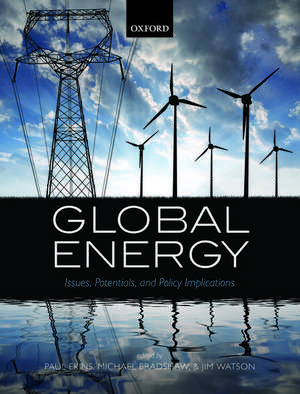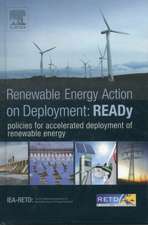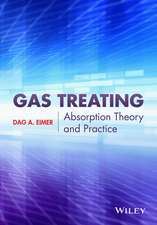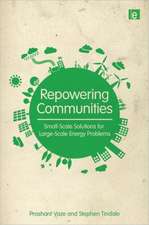Global Energy: Issues, Potentials, and Policy Implications
Editat de Paul Ekins, Mike Bradshaw, Jim Watsonen Limba Engleză Paperback – 17 sep 2015
| Toate formatele și edițiile | Preț | Express |
|---|---|---|
| Paperback (1) | 432.39 lei 31-37 zile | |
| OUP OXFORD – 17 sep 2015 | 432.39 lei 31-37 zile | |
| Hardback (1) | 1008.58 lei 31-37 zile | |
| OUP OXFORD – 16 sep 2015 | 1008.58 lei 31-37 zile |
Preț: 432.39 lei
Preț vechi: 485.19 lei
-11% Nou
Puncte Express: 649
Preț estimativ în valută:
82.76€ • 89.93$ • 69.57£
82.76€ • 89.93$ • 69.57£
Carte tipărită la comandă
Livrare economică 09-15 aprilie
Preluare comenzi: 021 569.72.76
Specificații
ISBN-13: 9780198719533
ISBN-10: 0198719531
Pagini: 624
Ilustrații: Figures and Tables
Dimensiuni: 192 x 248 x 35 mm
Greutate: 1.2 kg
Editura: OUP OXFORD
Colecția OUP Oxford
Locul publicării:Oxford, United Kingdom
ISBN-10: 0198719531
Pagini: 624
Ilustrații: Figures and Tables
Dimensiuni: 192 x 248 x 35 mm
Greutate: 1.2 kg
Editura: OUP OXFORD
Colecția OUP Oxford
Locul publicării:Oxford, United Kingdom
Notă biografică
Paul Ekins has a Ph.D. in economics from the University of London and is Professor of Resources and Environmental Policy and Director of the UCL Institute for Sustainable Resources, University College London. He is also Deputy Director of the UK Energy Research Centre, in charge of its Energy Resources and Vectors theme. He was a Member of the Royal Commission on Environmental Pollution from 2002-2008. Paul Ekins' academic work focuses on the conditions and policies for achieving an environmentally sustainable economy, concerning which he has written numerous books, papers and articles, including Global Warming and Energy Demand (co-Ed., Routledge, 1995), Economic Growth and Environmental Sustainability: the Prospects for Green Growth (Routledge, London, 2000), Carbon-Energy Taxation: Lessons from Europe (co-Ed, Oxford University Press, Oxford, 2009), and Energy 2050: the Transition to a Secure, Low-Carbon Energy System for the UK (co-Ed, Earthscan, London, 2011).Mike Bradshaw joined Warwick Business as Professor of Global Energy in January 2014, where he teaches a course on their Global Energy MBA entitled Energy in Global Politics. Prior to that he spent 13 years at the University of Leicester as Professor of Human Geography. He has a PhD in Human Geography from the University of British Columbia, Canada. His research deals with the geopolitical economy of oil and gas, with a particular emphasis on developments in Russia. He has recently completed a project funded by the UK Energy Research Centre (UKERC) that examined the Geopolitical Economy of Global Gas Security and Governance and its implications for the UK. He is also involved in both UK-based and EU-wide research programmes on the social science aspects of shale gas development. In 2014 Polity Press published his book: Global Energy Dilemmas. He is currently writing a book on the geopolitics of natural gas.Jim Watson is Research Director of the UK Energy Research Centre and Professor of Energy Policy at the University of Sussex. He was Director of the Sussex Energy Group at Sussex from Dec 2008 to Jan 2013. He has 20 years of research experience on climate change, energy and innovation policies. His recent outputs include a co-edited book: New Challenges in Energy Security: The UK in a multipolar world (Palgrave, 2013). He has advised several UK government departments, and has been a specialist adviser to two House of Commons select committees. He also has extensive international experience, particularly in China. He is a Council Member of the British Institute for Energy Economics, and a member of the advisory boards of several research and policy organisations.















